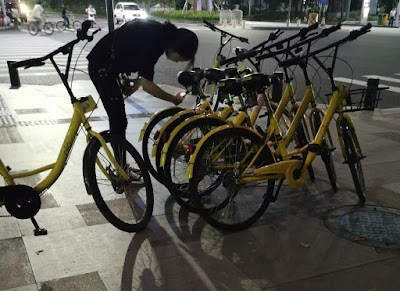The move is in line with guidelines set out in an agreement announced earlier this month among the Land Transport Authority (LTA) in Singapore, all five bike-sharing operators, the National Parks Board and all 16 town councils, ofo said.
To date, ofo has geotagged 1,400 locations across Singapore primarily around bus stops, MRT stations, and under HDB blocks. It is set to geotag up to 2,000 of these preferred parking zones so that they show up with a ‘P’ sign on the mobile application that is required to operate an ofo bike. Noah is able to detect if ofo bikes with Global Positioning System (GPS)-enabled smart locks are parked within one of the 1,400 preferred parking zones.
"The true differentiator lies in our rewards system, which helps inculcate long-term, positive riding habits in our users,” said Alan Jiang, ofo’s latest hire as Regional GM, Southeast Asia. The company will be introducing an incentive programme that allows users to exchange their credits for a reward at selected merchants at the later stages of implementation.
The company is gradually replacing the old bikes with mechanical locks in order to make way for greater effectiveness when dealing with errant parking. In September, ofo announced that its latest fleet of bikes have GPS-enabled locks that are certified safe by the Infocomm Media Development Authority (IMDA) Singapore. At the time, ofo said that it is the first and only bike sharing company that has filed for and received this machine-to-machine (M2M) certification in compliance with the Telecommunications Act.
Each GPS-enabled lock contains a SIM card which allows users to easily locate and unlock the bike. While a GPS-enabled lock increases location accuracy, allowing users to find and use the bikes easily, an uncertified lock brings with it a host of cybersecurity threats, ofo explained.
 |
| A girl scans the QR code at a street corner in Shenzhen, China to unlock an ofo bike ride. |